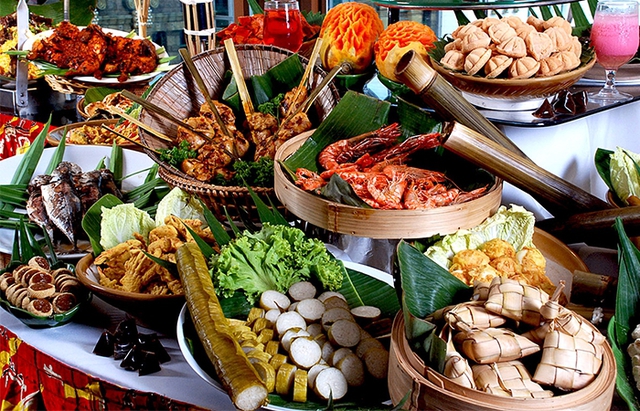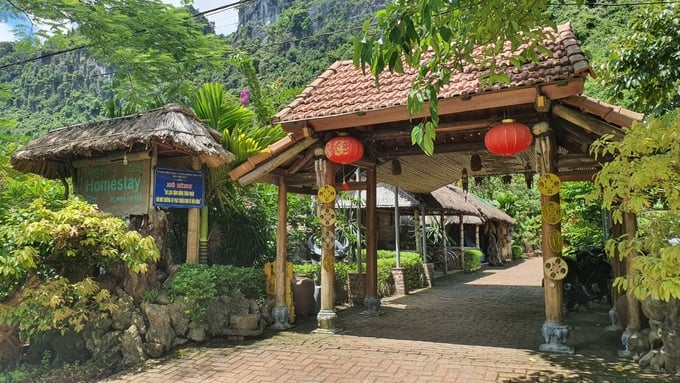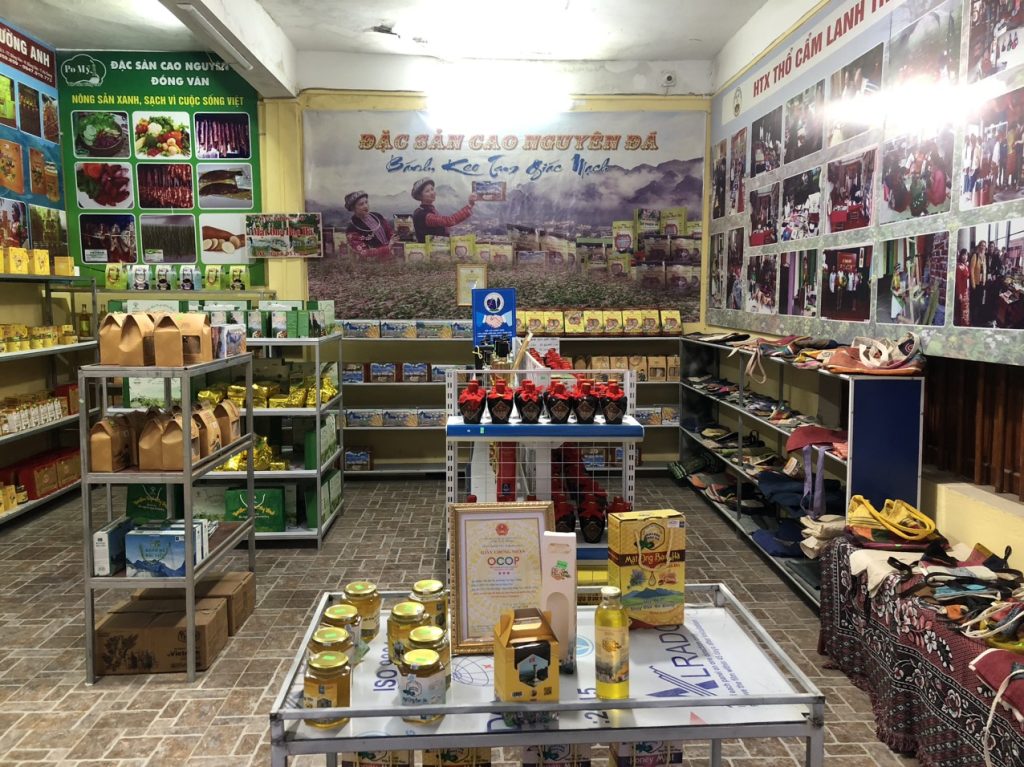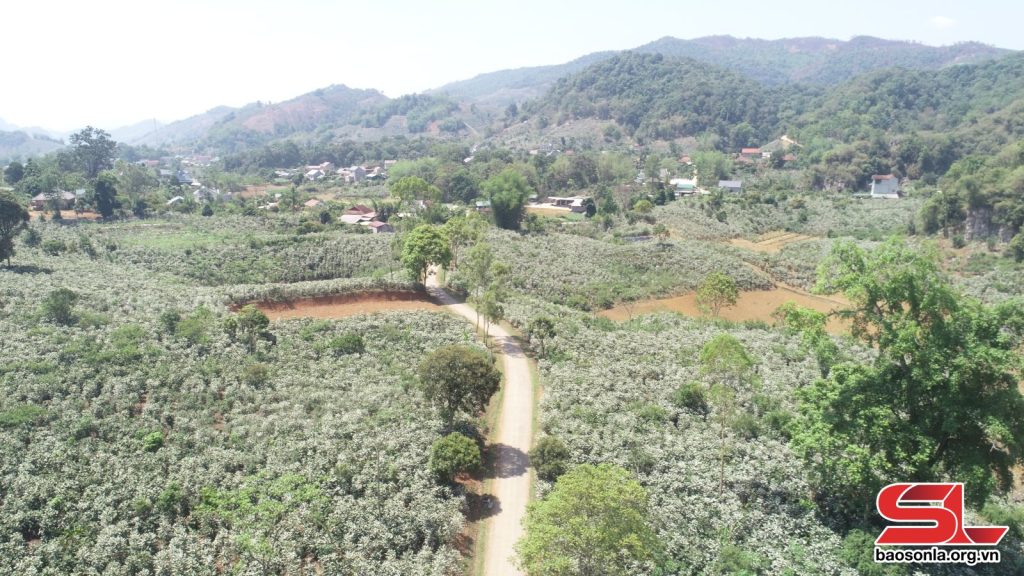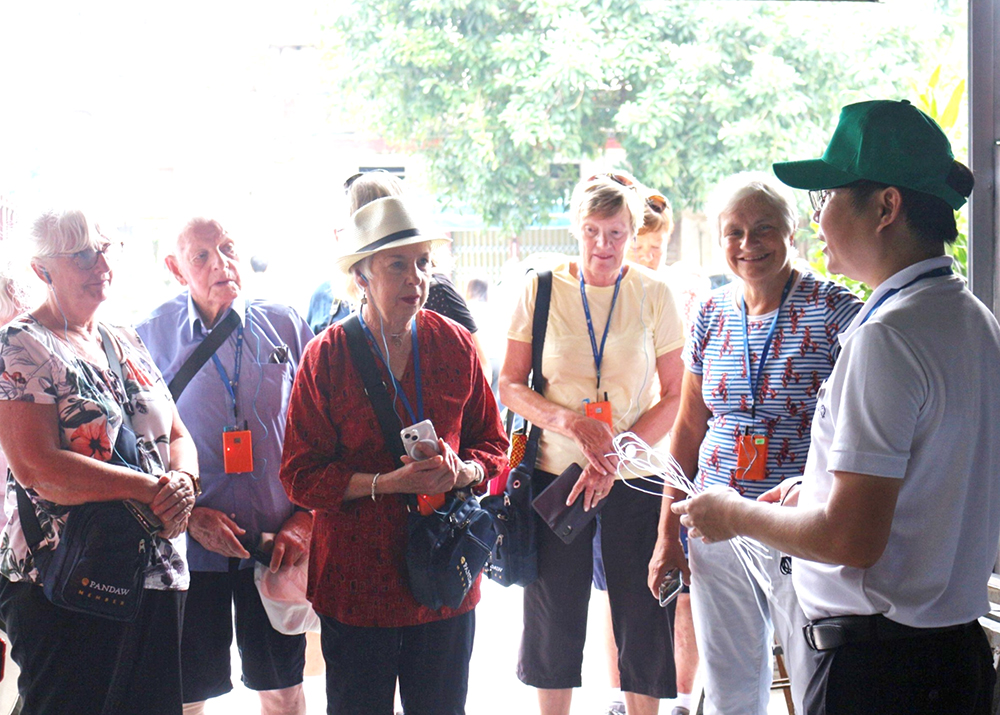
Tourists go to Doan Ket food processing craft village, Hung Lo commune, and Viet Tri city.
Craft village ups and downs
Phu Tho province currently has 71 craft villages that are operationally stable, of which 58.7% are craft villages that process and preserve agricultural, forestry, and aquatic products, 26.6% are handicraft villages, and the rest are craft villages that produce and trade ornamental creatures and construction materials. Craft communities have attracted 6,837 homes, 25 firms, and 11 cooperatives to participate in production activities, generating around 1,500 billion VND per year and employing over 16,700 people, including Vietnamese than 11,700 people who travel regularly. However, several craft villages are rapidly fading or stopping operations because they no longer fit the criteria for registration as a craft village.
Son Vi commune, Lam Thao district, a place that previously had a “golden age” with the warming profession, people “eat and sleep” with the profession early in the evening, even warming has grown out of the village’s bamboo mounds, becoming a unique product reaching domestic and overseas consumers. Hundreds of households worked in the village during the “golden age,” with older citizens performing tough jobs and young individuals learning the trade completing minor duties. However, the number of persons involved in the profession can only be counted on one hand.
Mr. Nguyen Dinh Hao, the head of Son Vi warming artisan village with approximately 50 years of expertise, revealed: “”Previously, the majority of the village’s households made warmers; now, that number has increased.“”fall off” practically anything. There are very few persons working in the profession, and they are all elderly; most young people are uninterested in it. The profession of Son Vi incubation is in risk of extinction unless a team of successors is assembled.”
We discovered that some craft villages, such as Chieng brocade weaving village in Kim Thuong commune, Tan Son district; Sai Nga conical hat craft village, Cam Khe district; Van Lang painting craft village, Tam Nong district; Ba Dong weaving village, Thanh Thuy district; Khuan Dau snake farming and processing village, Trung Giap commune, Phu Ninh district,…
Beautiful designs, product quality is highly valued, and many goods even have OCOP certification, however many craft villages are still at risk of disintegration for a variety of reasons, including: Lack of human resources because young people are no longer interested in the profession, the form of production organization in craft villages is primarily based on household size, is still small and fragmented, lacks cohesion between households in craft villages, between craft villages, and between craft villages with each other, very few craft villages have representatives who act as focal points for purchasing products, trading with outside parties, and providing legal representation f As a result, many artisan communities are confronting several challenges.
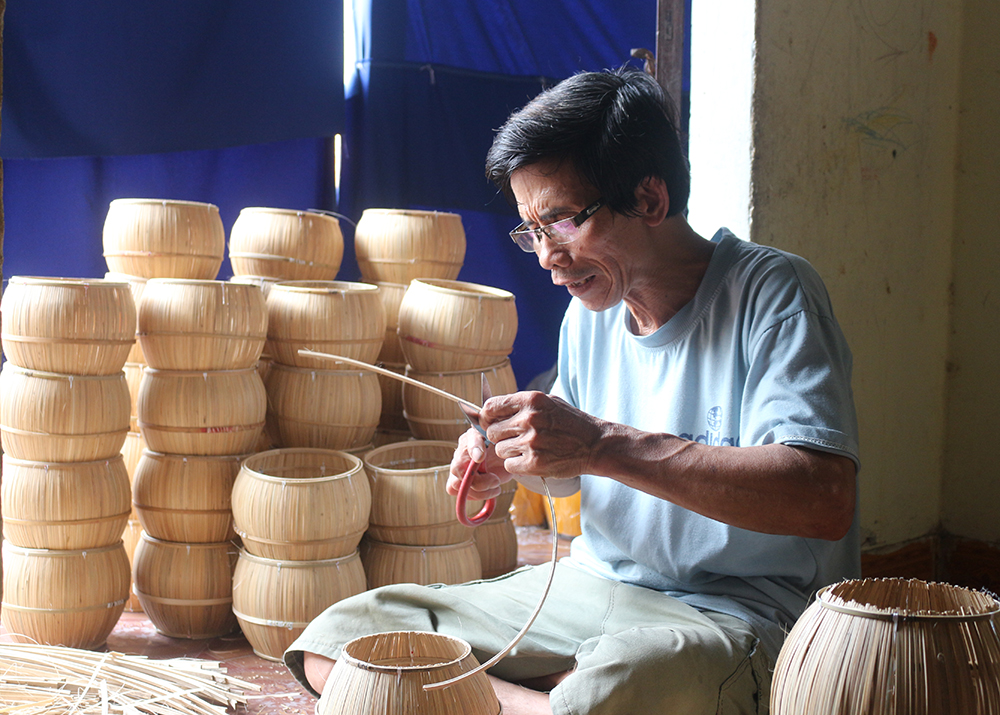
Only a few households in Son Vi warming craft village in Lam Thao district continue to practice the craft.
To ensure the long-term development of craft villages
Developing tourism-related craft villages or cooperatives (cooperatives) from craft villages… is one of the strategies that contributes to altering production efficiency in craft villages and generating new cohesiveness in production.
Currently, a number of communities in the province have capitalized on the strengths of tourism in conjunction with visiting and experiencing artisan villages, so enhancing people’s income, establishing highlights, and expanding visitor appeal.
Typically, on a Phu Tho river tour, visitors can experience river travel to explore Van Lang’s ancient capital, along the Lo river to Gia Thanh conical hat craft village, Gia Thanh commune, Phu Ninh district, go down to visit Hung Lo ancient village, Hung Lo commune, Viet Tri city to experience wrapping banh chung, noodle making steps at Doan Ket food processing village, and Xom village making chung cake and giay cake
A cooperative model has been developed in certain craft villages to concentrate resources in terms of capital, people, expertise, and experience to produce craft village goods in order to sustain and develop stable traditional craft villages.
There are now around ten cooperatives in the province that arose from the establishment of artisan villages. Products have been developed and registered for collective trademark protection, assisting in the improvement of the business activities of craft villages’ products, typically such as: rice noodles (Hung Lo rice noodle cooperative, Viet Tri city), soy sauce (Duc My soy sauce cooperative, Lam Thao district), green tea (Phu Thinh tea production and processing cooperative, Phu Tho town), red carp (Thuy Tram red carp cooperative in Cam Khe district).
The plan to implement the Program to conserve and develop craft villages in Phu Tho province for the period 2022-2030 is to have more than 70% of craft villages operating efficiently. At least 50% of artisan communities have goods designated under the One Commune One Product (OCOP) program. Certification markings, commodity marks, and collective marks are used to facilitate the production and administration of goods in 30% of artisan villages. 80% of craft village workers are trained, retrained, and retrained to increase their trade skills, workplace safety and hygiene abilities, and basic information technology understanding. In craft villages, the average annual growth rate of output value is around 10%. Workers’ average salary in artisan villages rises by at least 1.5 times compared to 2021.
To preserve and develop craft villages in a real, effective, and sustainable way, as well as to preserve and promote the traditional cultural values and identities of craft villages, it is necessary to focus on developing craft villages with strong provincial products, promoting linkages in production development, eliminating the ideology of “everyone’s house lights, everyone’s house shines,” and linking craft village production with local tourism, cultural, and traditional values. Simultaneously, work on conferring and recognizing the titles of excellent workers, craftsmen, top artisans, and people’s artisans in craft villages in order to keep the “treasures” in craft villages.
Thu Huong
Phu Tho Newspaper – en.baophutho.vn

